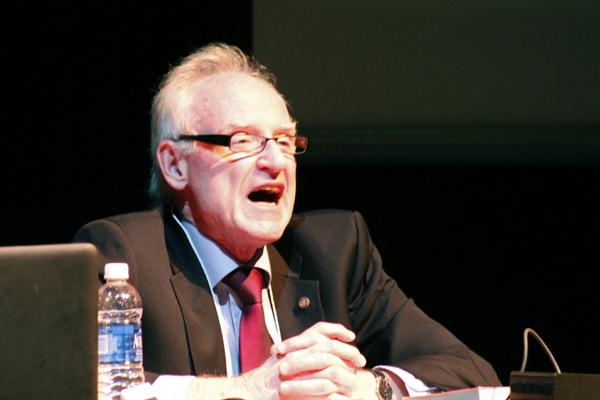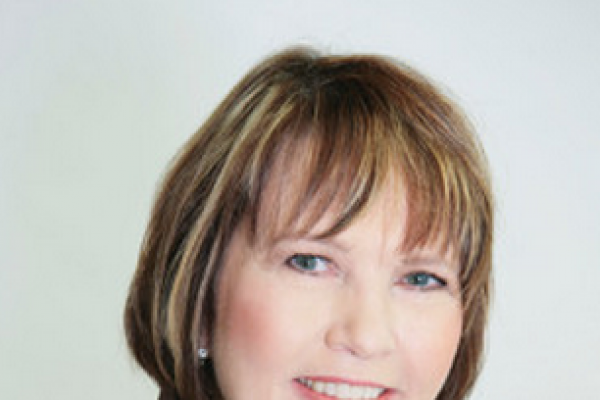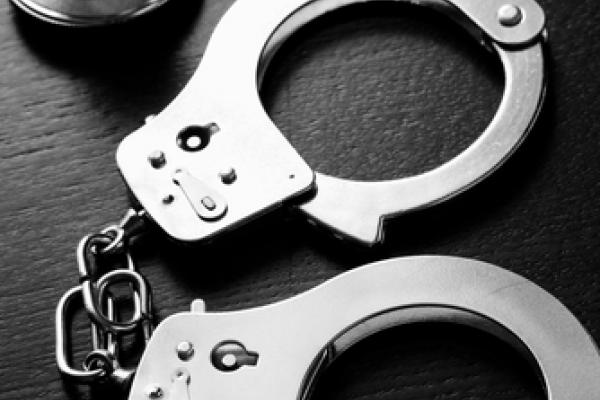Where do we go from here?
From the denial of racism to the naming and facing of racism.
If we are to move forward, we must acknowledge that racism is alive and well in the American psyche. It continues to function as a demonic force with devastating consequences for us all. To be white in America is to benefit from a system of power and privilege whether or not one has ever uttered a racist thought or committed a racist act.
Jerry Argetsinger never felt a twinge of tension between being gay and being Mormon.
Nobody talked about homosexuality in his Oregon congregation of the Church of Jesus Christ of Latter-day Saints when he was growing up in the 1960s. Nobody asked him about his attractions. Nobody made cruel or even not-so-subtle comments about him. Nobody made him feel guilty.
It came as a bit of a shock, then, when Argetsinger was beginning his sophomore year at LDS church-owned Brigham Young University in 1965 and heard university President Ernest L. Wilkinson say that the school didn’t want any gays on campus.
Eva Piper considered herself a shallow Christian until the accident that revitalized her faith and turned her Baptist pastor husband, Don Piper, into the best-selling author of “90 Minutes in Heaven.”
“It wasn’t until Don’s accident that I really opened myself up to a really honest relationship with the Lord,” said Eva Piper, who says she’s embarrassed to recall her superficial faith.
Eva Piper writes about life after her husband’s alleged visit to heaven in “A Walk Through the Dark,” released on July 30. Her book comes nine years after the publication of her husband’s book, which spent more than five years on The New York Times’ best-seller list.
The truth is that our faith and spirituality is often dependent on hundreds of different relationships, factors, institutions, and circumstances that we directly correlate with God.
When our Christian expectations are shattered, it’s easy to blame God. We mistakenly idolize the things that are associated with God, and assume that if one of these aspects failed then God failed.
“Christianity” will fail us. Our churches will attack, our pastors will lie, our mentors will manipulate, our friends will betray, and when this happens, our beliefs will be shaken to their core.
My dad used to tell a joke from the pulpit, back when “damn” was a much stronger word in evangelical/fundamentalist circles than it is now.
It went roughly like this:
“Millions of people die every day from preventable causes without ever having heard about Jesus’ love, and most of you don’t give a damn, and most of you are probably more worried about the fact that I said ‘damn’ than about the fact that millions of people die daily from preventable causes without ever having heard about Jesus’ love.”
I have a new post up at her.meneutics, Christianity Today’s women’s blog that, quite frankly, I don’t expect too many people to read.
It’s about how it’s perfectly legal in most states to shackle pregnant women while they are in labor.
Opponents of Obamacare like to talk about how long it takes to get a hip replacement in, say, Canada —even though the Affordable Care Act is nothing like the Canadian health plan. Let's put this in perspective. How about a system that charges so much that some middle-class insured people can't afford a hip replacement at all?
... Unless they fly to a Western European country with "socialized" medicine and pay out-of-pocket?
Check out this story about Michael Shopenn, a man whose artificial hip was manufactured in Warsaw, Indiana, a "global center of joint manufacturing." Shopenn, who had health insurance, could not get coverage for a hip operation because his insurer deemed it a pre-existing condition (note: that should no longer be a problem under the ACA). So he ended up flying to Belgium.
I’m excited to share this mixtape in honor of the Wild Goose Festival, Aug. 8-11 in Hot Springs, N.C.
For the festival proper, this third one will surely be a charm. But for me, it’s the second time around, hence the title of this playlist, also taken from an Indigo Girls song. Getting ready for a music festival for me requires hours upon hours of research: buying and downloading mp3s, studying sounds with the headphones on. These are just a few favorites I’ve found and suggestions for your weekend—mixing up the indie-folk with the psychedelic-liturgical with the pop-folk and power-pop.
The mixtape works like a storybook of sonic massage on the ears, guts, and heart. My prayer is that your listen will provide at least a sliver of the joy that making it offered. Hopefully you can allow this mix to accompany your packing routine or en route roadtrip. See you at the shows! Or if you cannot make it, hopefully these songs will remind you why you wish you could.






